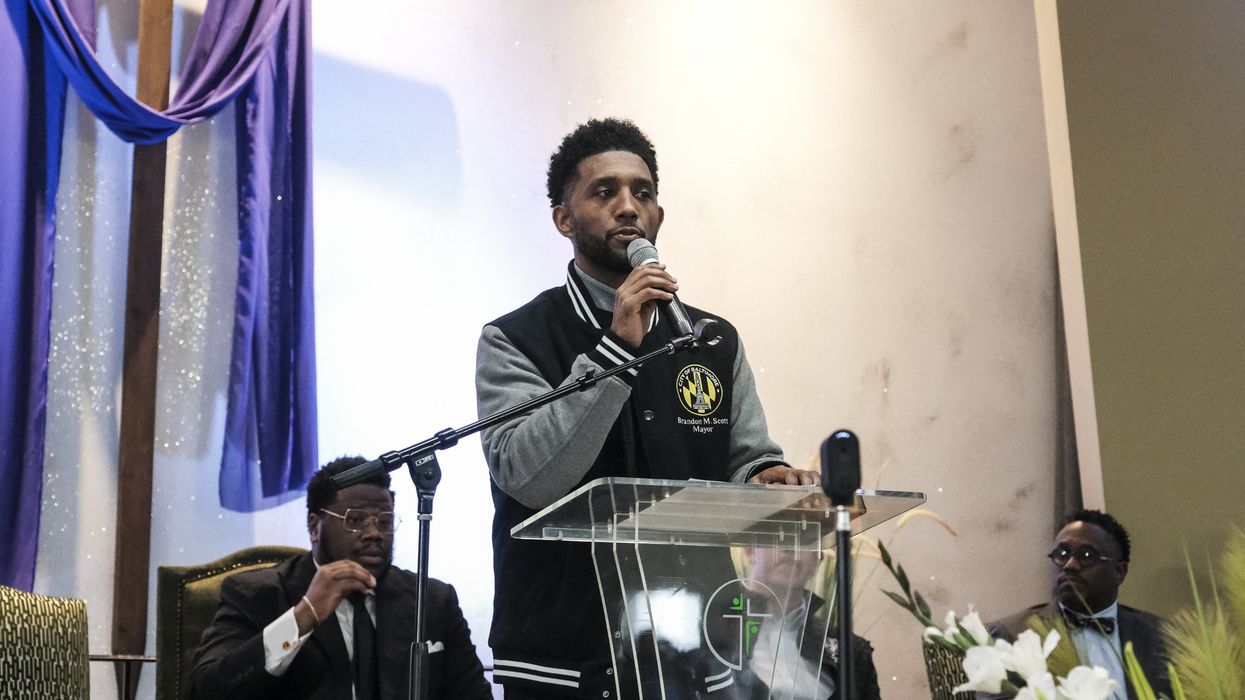Page is an American journalist, syndicated columnist, and senior member of the Chicago Tribune editorial board.
“DEI mayor.”
That’s how a troll on X, formerly Twitter, labeled a news clip of Baltimore Mayor Brandon Scott delivering an update on the collapse of the Francis Scott Key Bridge after it was struck by a massive cargo ship.
“It’s going to be so, so much worse,” the tweet concluded. “Prepare accordingly.”
I don’t know precisely what we are supposed to prepare for — and I imagine the troll doesn’t know, either. Some people, as I have learned on the receiving end of such bone-headed remarks in my own correspondence, don’t need to know what they’re talking about. They just want to vent.
But I was struck by the troll’s language. “DEI mayor”? So, that’s the latest way to call someone an “affirmative action” hire, meaning a way to insult someone as being unqualified for their position without using even more offensive language.
DEI is short for diversity, equity and inclusion, virtues that have become a vice in today’s discourse on the political right, just like the earlier label “affirmative action,” which the right casts as “reverse discrimination.”
No, mayors like Scott, 39, are elected, not employed under DEI hiring practices.
“What they mean by DEI, in my opinion,” Scott quipped in a later MSNBC interview, “is Duly Elected Incumbent.”
But the initials have taken on a life of their own as code, dressing up other epithets that are even less polite while delivering the same vile message.
Shortly after the bridge collapse, the Twitterverse churned with nasty tweets that, without offering anything resembling actual evidence, nevertheless blamed DEI for the disaster in which six people died.
Weeks before the bridge disaster, former President Donald Trump lashed into DEI in a January campaign speech in Rochester, New Hampshire. “We will terminate every diversity, equity and inclusion program across the entire federal government,” he said.
Among his backers was a widely reported coalition of conservative groups, led by the conservative Heritage Foundation, which has offered widely respected policy advice for conservative administrations since President Ronald Reagan’s years.
Dumping DEI is one of many policies included in Project 2025, a long to-do list of goals for Trump’s second term, should he win one.
So goes the persistent boom-and-bust cycles of racial politics — two steps forward, one step back throughout American history, but with an accelerating pace, it seems, since the 1960s.
Civil rights is a good example. Voting rights and other reforms that followed the Civil War were rolled back in Reconstruction and the decades after. In many ways, conservatives in this era have watered down or nullified the civil rights and voting rights breakthroughs of the 1960s, including affirmative action.
Most noticeable is the Supreme Court, which, among other examples, held last year that accounting for race in various stages of the admissions process at Harvard and the University of North Carolina violates the equal protection clause of the 14th Amendment.
Yet, as I have followed this issue over the decades, I have been encouraged at various times by the resilience of affirmative action in its various forms.
No, it is hardly a perfect remedy for the ills caused by historical racism. For example, I appreciate the aims of DEI, but I have sometimes been disappointed by shortcomings. Some DEI efforts, for example, have been more successful than others, partly because there is widespread disagreement over what works — and what could work better.
The business community, for example, is understandably cautious about wading into political controversies, yet there is ample experience to show that diversity programs broaden the pool of available talent and enhance productivity. “If we didn’t have a good diversity hiring and talent development program,” one senior executive told me,” it would be necessary for us to invent one.”
That’s what many companies are doing, whether to avoid lawsuits or, more happily, improve their recruitment and talent development.
Now, with the rise of the backlash from the right, much of it well funded, some companies have shied away from DEI or continued their efforts while keeping mum about them. We have yet to see whether diversity efforts in corporate America will succumb to the pressure exerted by ambitious politicians who view civil rights as a wedge issue to be exploited. Hopefully, this moment will represent just one step back before we again take two steps forward.
First posted April 3, 2024. (C)2024 Tribune Content Agency, LLC.




















Trump & Hegseth gave Mark Kelly a huge 2028 gift